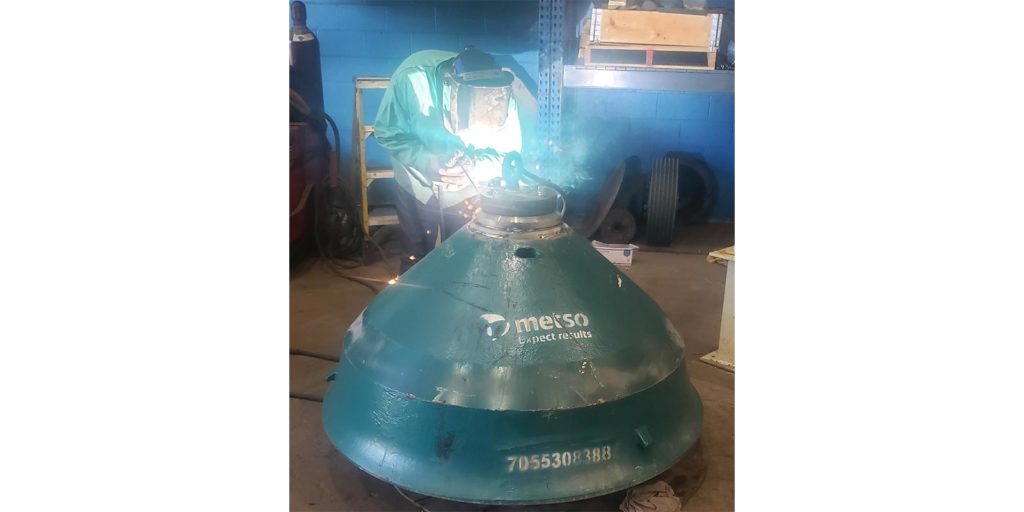Rock-crushing equipment is important for companies that process rocks and stones into gravel, sand, or other materials. It is essential to keep this equipment properly maintained through regular inspections and timely repairs in order to avoid catastrophic failures that can result in costly downtime and safety risks.
For many rock rushing operators and project managers, it can be difficult to estimate the life span of the parts contained within jaw crushers, cone crushers, and VSI plants. The life span of these parts is highly dependent on a few main factors that include:
-
Density of Materials
Rock-crushing parts must be able to withstand the constant stress of crushing incredibly hard materials. The density of the materials being crushed plays a big role in how long the parts last. The denser the materials, the more wear and tear on the parts. The more abrasive the materials are on your machinery, the less life span you can expect compared to the manufacturer’s predictions.
-
Proper Maintenance
How well you maintain your equipment will also play a role in how long the rock-crushing parts contained within the machinery will last. It is essential to properly maintain these parts in order to maximize their life span. By regularly cleaning and lubricating the parts, removing debris, and following manufacturer instructions, you can help ensure that they operate smoothly and efficiently. If any problems do occur, address them as soon as possible. Failure to do so could result in decreased performance and premature wear and tear.
-
Quality of Parts
Finally, the quality of the parts also is an important factor to consider when assessing the health of your rock-crushing machinery. Machinery with average quality parts will only provide an average quality lifespan. The higher quality of the parts of the machine, the longer you can expect your machinery to last.
Overall, all of these factors work together to affect the life span of your equipment. If you are concerned about the rock-crushing parts of your machinery becoming too worn and in need of replacement, consider how well you have maintained the machinery, what quality it is, and also how dense the materials it has worked with have been. Review historical material and other information that can help you estimate the necessity for repairs on your machinery.
Tips for Maximizing Rock-Crusher Efficiency
To maximize the life span of your rock-crushing parts, there are some best practices you can implement into your workflow:
- Make sure the crusher is properly calibrated to the desired size. This ensures that the correct amount of force is applied and that wear on the crusher parts is minimized.
- Keep the crusher clean. Rock dust can build up on the surfaces of the crusher parts and affect their performance. Debris can quickly build up and lead to decreased performance and increased wear and tear.
- Regularly check the wear on the crusher parts and replace them as needed. Worn parts can decrease the efficiency of the crusher and lead to increased wear and tear on other parts.
Also, consider the unique aspects of different types of rock-crushing machinery:
- Impact crusher considerations
-
- It is crucial that the feed arrangement to an impact crusher ensures an even distribution of material across the full width of the rotor. This allows for an even distribution of energy into the feed material and uniform wear patterns, ensuring consistent product gradation and power consumption.
- Impactors should be consistently fed based on the amperage drawn.
- Cone & gyratory crusher considerations
-
- Make sure the crusher does not experience ring bounce/chatter
- Ensure consistent feeding and level sensor calibration
- Low oil temperature can prevent operation
- Regular inspections before usage for plugging, bridging, or clogging
Benefits of Routine Maintenance
One of the main benefits of proper maintenance is that it can help prevent catastrophic failures. Equipment failures can be extremely costly, both in terms of lost production and repairs that may be needed. They can also lead to safety risks for employees if the equipment malfunctions while it is in use.
Another important benefit of regular maintenance is that it can help improve the efficiency and life span of the equipment. By catching small problems before they turn into big ones, regular maintenance can help extend the life of the equipment and improve its overall performance. This can save your business a lot of money in the long run.
Get the Maintenance Assistance You Need
Rock crushers are an important part of many industrial and construction processes, but they can be difficult to maintain properly. . Without expert help, it can be challenging to ensure that your crusher is working at peak efficiency.
Fortunately, there are experts who can help with this. At Mellott, our team of experts can provide you with the advice and support you need to understand how to best maintain and fix your rock crushing equipment. We have years of experience in the industry and can help you troubleshoot any problems you may be having with your crusher. Contact us today at 855-554-1606 to learn more about our services.

